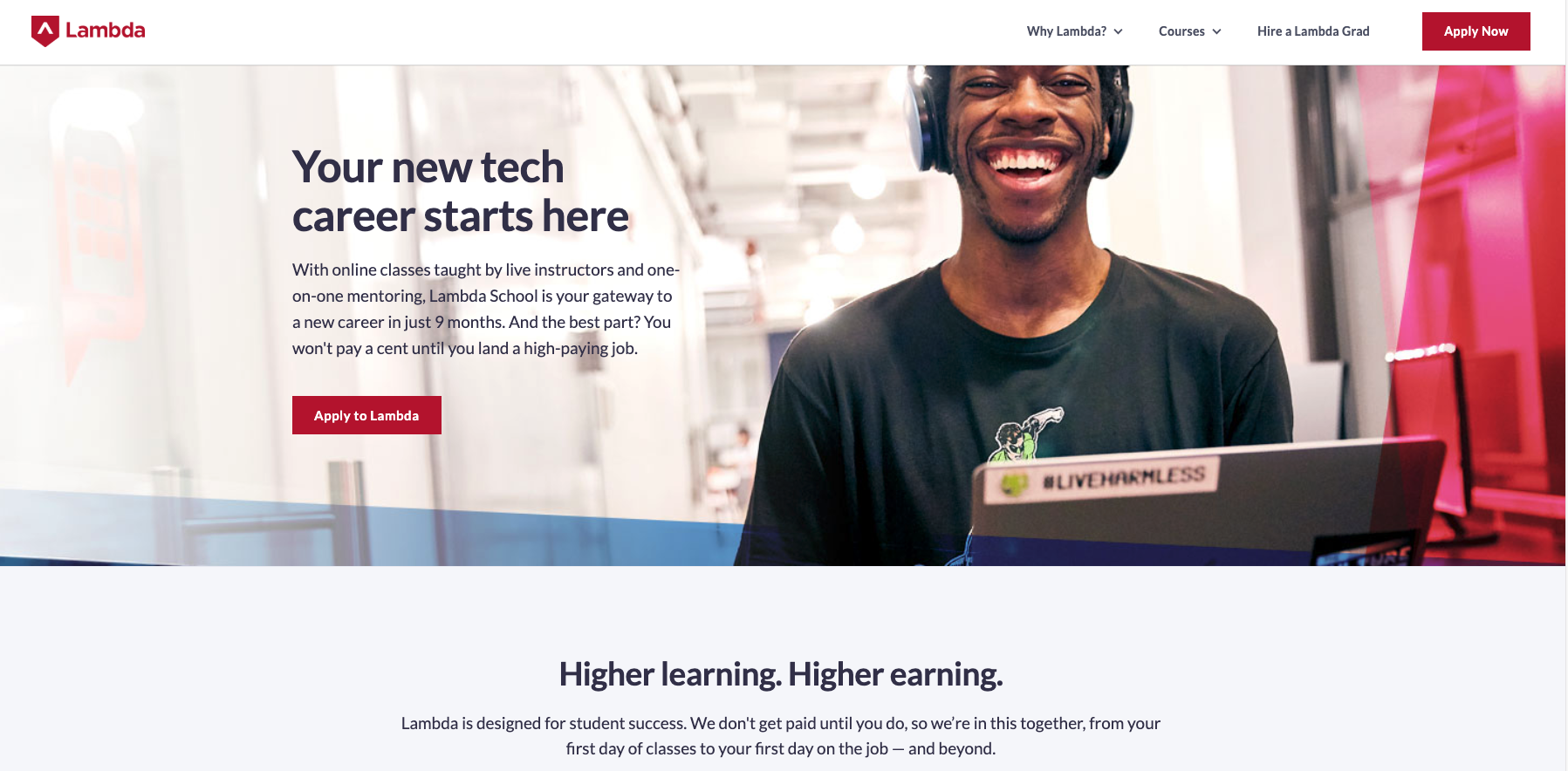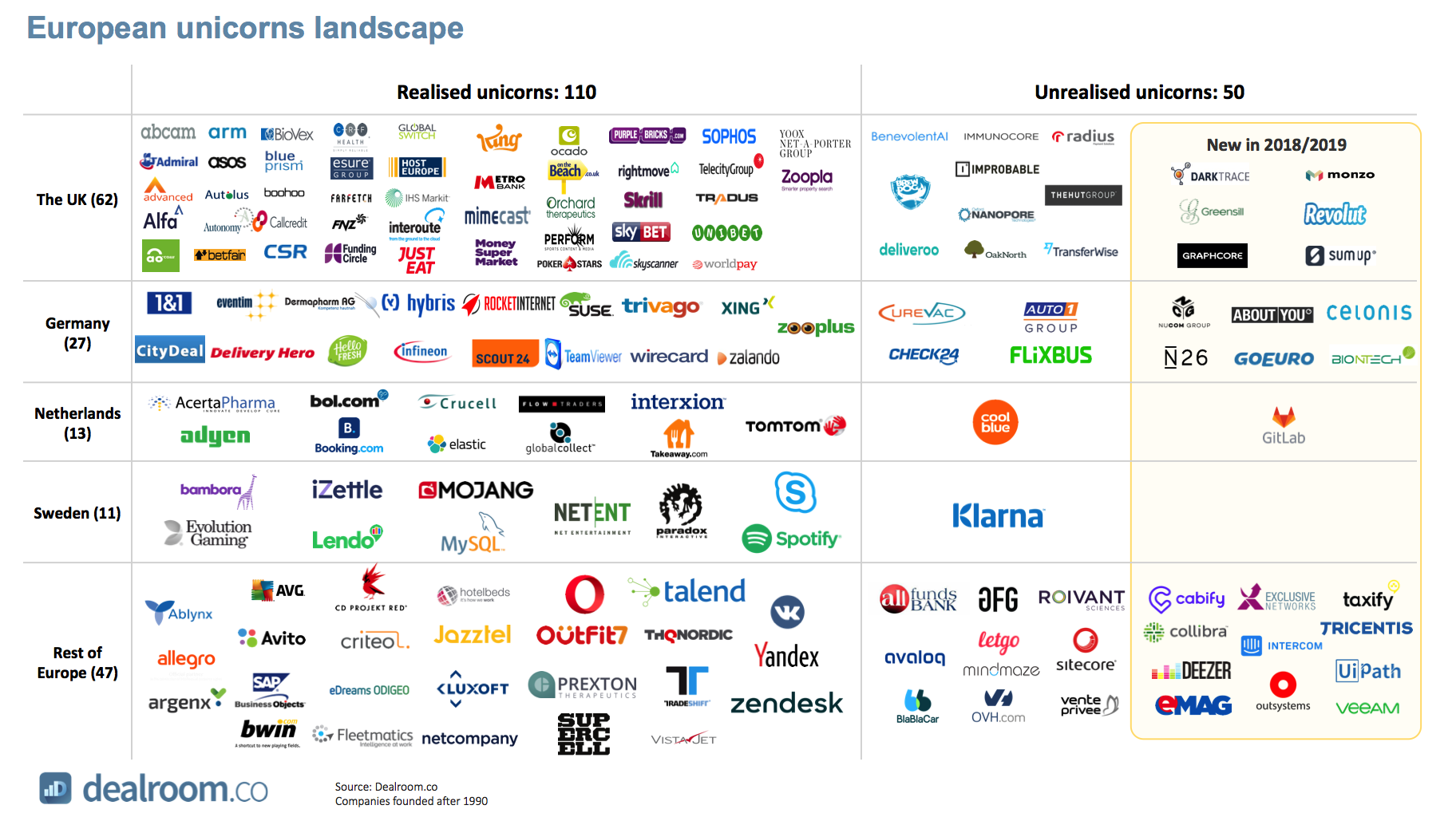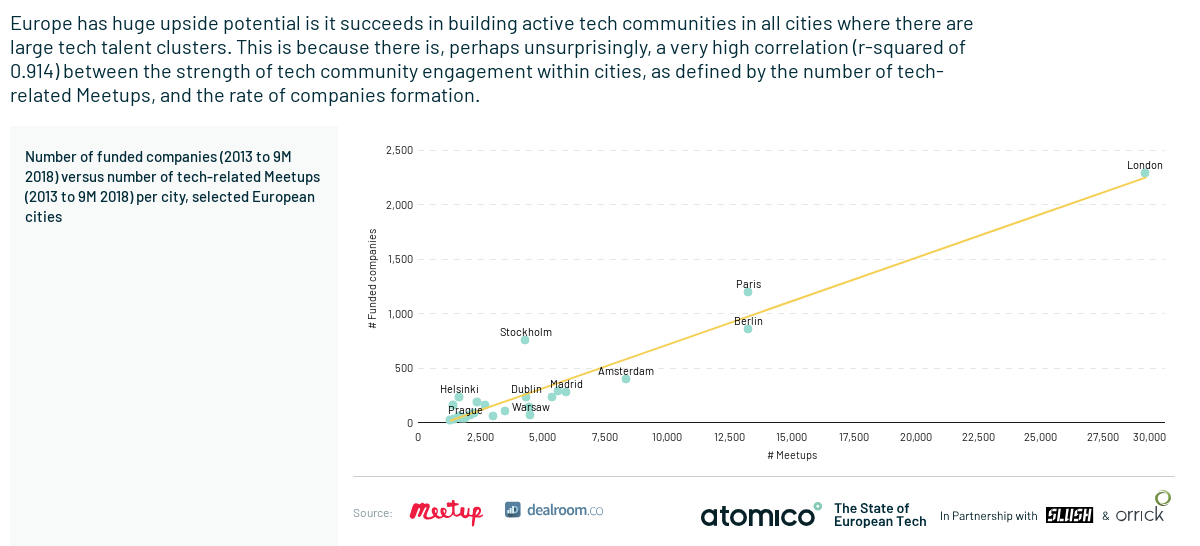The European tech ecosystem is in a strange place.
Investment is pouring in, the ecosystem is primed for growth, but there isn’t enough talent going around.
In the second quarter of 2019, the VC investment in this sector jumped from €5.8bn in the second quarter of last year to a new record of €9.3bn.
There are more unicorns, initial public offerings, and new startups than ever before. Sectors such as fintech, mobility and healthtech are particularly booming.
However, according to Tara Sinclair, chief economist at Indeed, “European employers... have large numbers of vacancies and not enough candidates to fill them.”
The answer: ISAs
Income Share Agreements, or ISAs for short, are agreements where users pay for a service with a percentage of their future salaries rather than money upfront.
They came to prominence with San Francisco-based Lambda School, which runs a remote software engineering school where students pay $0 tuition until they land a job that makes them at least $50.000 a year. Then, they pay 17% of their income for up to two years or up to $30,000, whatever comes first.
Lambda has raised two consecutive, sizable financing rounds by top VCs and is the darlings of the space, but it isn’t the only player in the US. ISAs as a financial instrument have been around for ages and can take many forms.

Microverse has a similar model. Make School, a more traditional school, offers both full and partial ISAs for their students. Demand Curve trains you as a growth marketer in exchange for 11.5% of your salary. Avenify has a different business model all together, offering ISAs to students seeking financing for any college.
ISAs might seem just like a fancier way to pay for education, but there’s a major twist: incentives.
When a student incurs traditional debt to attend a college or academy, there is no guarantee they will find a job afterwards. The school’s priority is not to get you a job, it’s to get you through school so you pay full tuition fees.
Everything else – like national rankings – are a way to drive up enrollment because new students is what keeps the university alive. The school and the student’s incentives are not aligned because they get rewarded for different outcomes.
But schools that offer ISAs are a different story altogether, because they don’t make a penny until the student gets what they want – to start working. The incentives are flipped.
When ISAs are in place, the student and the school’s incentives are completely aligned which means the school can (and should) invest millions in securing high-paying jobs for their graduates. After all, that’s the only way they’ll get paid.
When speaking with Austen Allred, CEO of Lambda School, he said: “Income Share Agreements not only save students money upfront, they align the incentives of the school and the student, ensuring outcomes are more mutually beneficial.”

That’s a big reason why 86% of Lambda School graduates are hired within six months — many to top employers like Google, Stripe and Microsoft — and make over $50,000 a year.
In theory, at scale ISAs could produce job-ready talent in 9 to 12 months at a positive return-on-investment for schools. If the education is good enough, with a minimum barrier to entry ($0) and no need to move city, the bottleneck is how fast can a school process candidates.
On the other side, there’s never a shortage of European companies looking to hire grit-fueled, smart soon-to-be engineers, data scientists and growth hackers.
But is this change in education model enough?
Can ISAs move the needle in Europe?
Anything that increases the number of job-ready high-skilled talent can help the Europen tech ecosystem. And as Lambda and Microverse graduates can attest, they work.
The average annual income for Lambda students when they enter is $22,000, and on average, they increase their income by $47,000.
But it’s more complicated than that in Europe, for the main reason that Europe’s talent shortage is so great that we would need a huge number of ISAs to make a difference - and that may not be possible.
Along with a recent jump in VC investment fueled by mega-rounds, Europe has also seen the inception of 14 new unicorns last year.

Most of this activity is concentrated in a handful of tech hubs, where ISAs are too new and too few to meet the ever-growing demand for talent.
Europe doesn’t need hundreds of engineers. It needs tens of thousands. E-scooter startup Bird alone is planning to hire 1000 people in Paris.
Is that scale possible?
The problem is that ISAs are an immature industry. Startups are the first movers, but due to bureaucracy and legal mechanisms in place to protect the student and minimize the risk for schools, most traditional institutions won’t move to ISAs anytime soon.
Second, the legal implications of establishing ISAs (which are, effectively, a form of debt) across different countries. The US being only one very large country makes these agreements fairly easy to legislate. Europe isn’t just one country, but a fragmented nightmare of legislation where most laws vary from country to country.
Do ISAs need to become as big and prevalent as traditional school debt to work? Should universities rethink their goals? Where’s the tipping point, exactly?
ISAs as a driver for smaller tech hubs
An often overlooked feature of schools offering Income Share Agreements is that their education is entirely remote. This means that students come from all over, not only major thriving hubs where universities (and tech companies) are located.
Again, Austen Allred, CEO at Lambda: “Because our instruction is entirely remote, in addition to being risk-free, we attract students from all over, many of whom either want to stay in their hometowns or are willing to relocate for the right position.”
Apart from creating opportunities for new students, what this does is open up the hiring pipeline tremendously, and not just for well-known companies in major technology hubs, but for companies of all sizes, everywhere.
According to Atomico’s 2018 State of European Tech report, “it’s clear that Europe’s tech ecosystem to date has been driven by just a handful of cities.... For example, 76% of all capital invested into Europe since 2013 has flowed to just 10 hubs.”

But smaller hubs like Cardiff, Milano, or Sofia are growing at impressive rates, and desperately need talent to support their growth.
This is interesting because smaller tech hubs don’t need a million engineers to affect change, essentially killing the “ISAs aren’t big enough” argument.
At the moment of publication, Lambda has 50 students located in the EU currently enrolled, who still have between at least 4 weeks to complete the program. Two have already been hired early and will start at technology companies once they complete the program.
“We also have a number of European resident students who studied US-based classes. They have been hired in Denmark, Germany, The Netherlands, UK and Moldova.”, confirms Allred.
A hundred new software engineers in Paris won’t make a dent, but in a smaller hub like Wroclaw, they might spark a revolution in the ecosystem.
By making access to talent an order of magnitude easier for companies *everywhere*, not just the main tech hubs, you are applying a lever to a place that hasn’t seen activity in a while, but that is ripe for scaling.
ISAs – whether as part of a remote or a European institution – can be the key that unlocks growth in Europe’s secondary and tertiary hubs, levelling up the playing field a bit. They can provide a solid foundation of talent, which would, in turn, create growth and momentum across the entire European tech industry.
ISAs need to be part of a bigger plan
European tech is enjoying a time of staggering growth and as a result, suffering the effects of a talent shortage.
If Europe wants to maintain this unprecedented growth rate and play with the big boys instead of returning to the mean, the talent crisis needs to be solved.
I’ve argued that the implementation of Income Share Agreements in European education could potentially solve that crisis.
But I’m not that naive.
ISAs aren’t the be-all and end-all. A big influx of well-trained and job-ready workers may just be exactly what this industry needs, but ISAs by themselves can’t fix that. Not even when layered on top of the perfect circumstances.
They can provide a small, yet solid source of talent, a foundation for the European tech industry to be able to grow at a faster and faster pace without collapsing and falling to its knees victim of its own weight. But that doesn’t mean the implementation of ISAs will bring forth an overabundance of unicorns like we see in Silicon Valley.
Europe’s tech talent shortage is a structural problem driven by supply and demand. Disrupting education to increase supply is only one piece of the puzzle, but not enough.
For Europe to rise to the level of the US and Asian market, other things need to be in place, like better salaries, a lower barrier to entry for founders by expanding tech visas and an improved stock option scheme.



